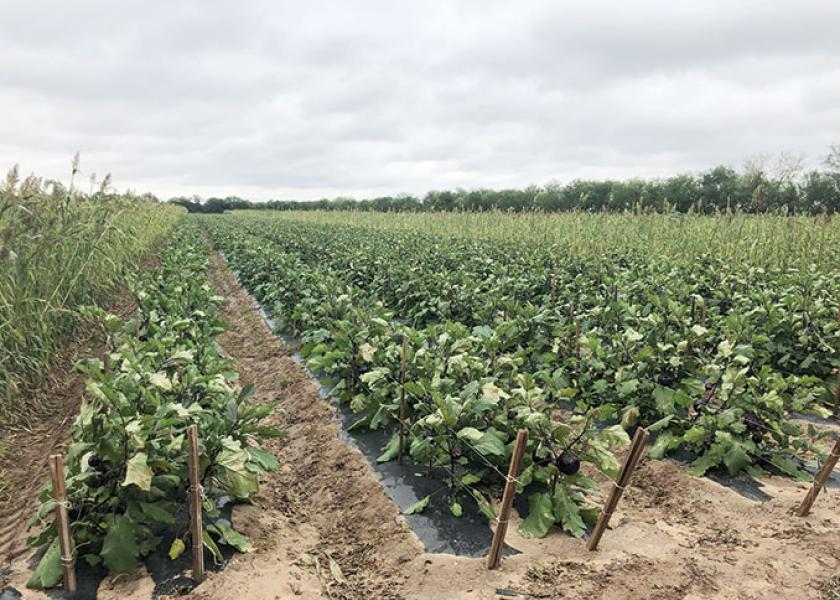Is Specialty Produce Headed For The Mid-Mississippi Delta?

By Julia Kurnik, Director of Innovation Startups, WWF Markets Institute
California produces more than one-third of the vegetables and two-thirds of fruits and nuts that are grown in the United States today. However, as the global climate changes, California will likely suffer from more chronic weather (e.g. increased droughts) as well as severe weather (e.g. heavy rains, flooding, fires and freezes) in the years to come, making farming there less certain and putting U.S. food security at risk. Some farming is likely to shift, and at WWF’s Markets Institute we are exploring whether fruit and vegetable production can be boosted in the mid-Mississippi Delta to take pressure off California in a win-win-win for the environment, food security and local communities.
In the first phase of our strategic analysis, we explored the potential from an ecological, social, and financial lens to boost farming of specialty produce in the mid-Mississippi Delta River region (eastern Arkansas, western Tennessee, southeast Missouri, and northwest Mississippi) and the Arkansas River Valley. It’s a region with fertile soils and a long history of farming, but it also has a very different climate than California’s Central Valley. Water is plentiful, but it’s humid whereas California is quite dry.
There are many opportunities in the region. With its history of farming, strategic location, low-cost land and labor, fertile soils and abundant rain, the mid-Delta region offers many benefits that might support specialty farming on a larger scale. The diversity of the region, from the flat plains of the Mississippi Delta to the mountains and hills of the Arkansas River Valley, brings the opportunity to target different crops in different areas, allowing for growth of a wider variety of produce. Meanwhile, there are many strong local partners who are eager to work together to have a bigger impact. There are also opportunities for the region to develop a competitive advantage. Testing seeds and investing in public breeding programs could lead to heirloom and regionally specific varieties, which are increasingly in demand. Growing these higher value crops could also bring a significant economic boost to growers and their communities in an economically depressed region.
However, there are significant hurdles. First, while it is an area with a long history of farming, there is very little specialty produce grown in the region. It is dominated by commodity row crops, such as rice, soy, wheat, corn and cotton. The farmers here are innovative and, with the right safeguards, willing to tackle this new challenge, but they would still need significant technical support since this would be such a large change in production practices.
Infrastructure investments would also need to be made to grow, harvest, store, and transport these more delicate and perishable crops, as the current infrastructure is geared towards commodity row crops. While some of this could be done at a farm level, much of it would be too expensive for an individual farmer and would need to be organized as co-ops, communities, or even regions to attract the interest and support of major corporations.
Finally, there would need to be a different approach to labor. Specialty crops require more hand-picking labor, whereas the region’s producers currently use machines to harvest their row crops. The labor shift would be expensive, time-consuming and a behavior change. It also likely means further education about and interaction with the H-2A migrant labor program.
In our next phase, we aim to answer key additional questions, elicit further stakeholder buy-in with firm commitments, and design a specialty produce pilot program in the region.
We believe that this region holds a lot of potential to grow specialty produce in commercial quantities to ease some of the pressure on California, benefit farmers and local communities, and protect the environment without risking our food security. We envision the possibility of a more distributed food system where producers grow what is best suited to local climates, closer to consumers with less waste, and economically depressed areas can benefit from higher-value crops. Our goal is that this new model could serve as an example for other regions around the country – so that the mid-Mississippi Delta is just one of many “next Californias.”
Sorghum Expected to Hit its Stride with Sales and Acre Increases
Analysis: Corn and Peanuts Could Be Biggest Acreage Gain In Southeast
John Phipps: Farmland Isn't Vanishing as Quickly as Some Think







